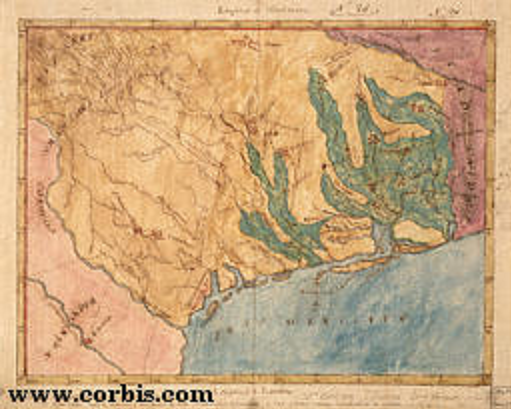|
... II. The Framework ...
values

 paradoxes
paradoxes
|
The Australian Aborigine Tribes owned a Songline. They owned a one-dimensional trail
through the outback. And sometimes, when the Songlines of two tribes intersected there was a war between the tribes to
determine who owned the intersecting place, for instance, a mountain where ancestral locusts first came forth to teach
mankind a certain lesson. However, when the English arrived with their maps, claiming and mapping land in the name of
the crown, there was no way for the one-dimensional Songlines to compete with two-dimensional maps, and with the
European guns, germs, and steel.2.75 The same thing happened in the
Americas. Figure 27 shows Stephen F. Austinís Map of Texas,
which defined the initial landholdings of immigrants from the United States to this part of what was Mexico. The
importance of maps as an underlying justification for expansion of colonialism can not be overstated. If one could
map it, one could claim it, or eventually find a way to own it.

Figure 27. Stephen F. Austinís Map of Texas
Maps have provided a record for the first explorers, people like Lewis & Clark.
Maps became a goal for those who followed, like the 49ers who rushed to the gold fields of California.
Maps extend the human mind. Today we use Google Maps,
Map Quest, or the equivalent to routinely find our way from place A to place B.
GPS (Global Positioning Satellite) maps are making their way into cars and cell phones. Maps have been
good tools for archive and communication.
|
timedex

 infinite grid
infinite grid
-085-
|